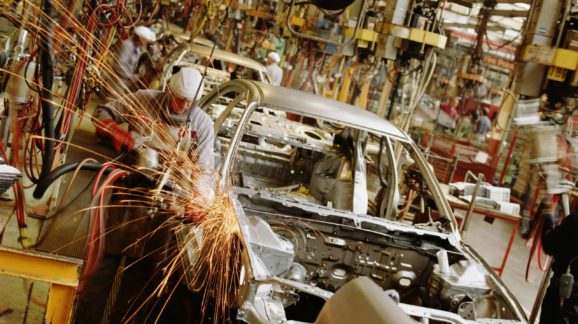UAW Corruption Case Reveals Lack of Accountability at Union

Photo Credit: Getty
Today the Department of Justice (DOJ) announced a settlement in a long-running corruption probe of the United Auto Workers (UAW) that will put the union under federal oversight for six years and allow the UAW’s rank and file to vote on reforming the union’s leadership elections. While they’re at it, the feds should also ask the UAW members whether they want to be represented by that union at all.
There isn’t a living worker at General Motors (GM), Ford, or Fiat-Chrysler who had a chance to vote on whether they wanted the UAW to represent them. The Big Three automakers were all organized in the late 1930s and early 1940s and workers haven’t had a chance to weigh in since then. Maybe they want different representation?
Today’s settlement announcement certainly demonstrates the culture of corruption that can emerge when the workers’ support can be taken for granted.
The federal probe involved “an extensive and long-lasting effort by two former UAW presidents and their underlings to embezzle over $1.5 million in UAW money for their personal benefit,” the DOJ noted. The scheme involved embezzling funds meant for worker retraining centers jointly run by the manufacturers and the union. Feds allege a similar scam was arranged by UAW officials and GM executives.
The probe relating to the Fat-Chrysler led to the convictions of 15 UAW officials, including two of the union’s former presidents, Dennis Williams and Gary Jones, on charges of fraud and embezzlement. The union has paid back $15 million in money meant for the centers.
That’s a culture of corruption if there ever was one. The DOJ said the plea deal addresses the issue by requiring UAW to hold a binding referendum on changing its internal elections. The rank and file would be asked if the union should scrap the current delegate system in favor of direct elections for the union’s president and board members.
That would be an improvement. The delegate system allows incumbent union leaders to game elections by putting their cronies on the ballot. But is it enough?
“For unions to be effective, members must trust their leadership to do what is best for the entire union and not just for themselves. The 15 convictions obtained during this years-long investigation make it clear UAW leadership has been unworthy of its members’ trust for some time,” said Timothy Waters, Special Agent in Charge of the FBI in Michigan.
Well, if that’s the case, shouldn’t whether UAW gets to remain the workers’ exclusive representative also be up for discussion? If DOJ thinks a full decertification vote would be too disruptive, then make it non-binding. It would nice to know just what the workers think.